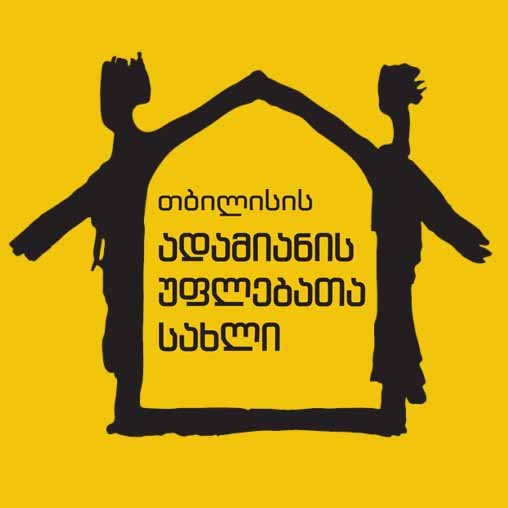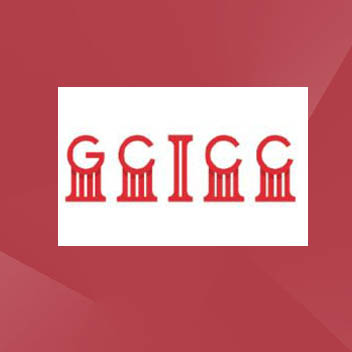Statements
Statement by Human Rights Center regarding the Unlawful Restriction of Freedom of Assembly in the Context of the Spread of the New Coronavirus
03.04.2021
Font size
Human Rights Center (HRC) monitors the steps taken by the State to combat the coronavirus pandemic. The area of interest of HRC is the actions taken by the state to help the citizens affected by the coronavirus, as well as the restrictions introduced for the prevention of the spread of the coronavirus. Restrictions against coronavirus impacted different categories of fundamental rights. One of the areas of observation of HRC is the restrictions that hinder the full realization of civil rights and freedoms.
In emergency situations, when the vital state or public good is under substantial threat, unhindered realization of civil liberties is critically important. In such situations, the state power expands in terms of intervention and restriction of human rights, in order to effectively overcome the issues created by the unforeseen circumstances. The scope and criteria for such interference, in some instances, is not clearly defined. This creates significant risks of abuse of power and disproportionate restriction of fundamental rights. Therefore, it is essential that this process is accompanied by a healthy public debate and critical assessment of the appropriateness of the restrictions with the participation of different parts of society. The assemblies and manifestations, which represent the forms of collective expression of opinion, are fundamental part of such discussions. The freedom of assembly and manifestation ensures that citizens can unite for bringing specific concerns to the attention of relevant authorities and promote their significance to the wider society.
The freedom of peaceful assembly and manifestation has been disproportionately restricted at various stages of Covid-19 pandemic in Georgia that raises questions whether the state sufficiently understands the fundamental importance of this right for a democratic society. At the initial stage of the coronavirus outbreak, during the state of emergency, right to peaceful assembly and manifestation was completely banned in Georgia. The gatherings of the individuals, which did not convey a particular idea or opinion, were also restricted. Despite the fact that the Presidential Decree allowed the government to make exceptions and permit the assemblies and manifestations in some cases, the government completely banned assemblies and manifestations, without providing relevant justification. This was not necessary and proportionate for the legitimate aim of fighting coronavirus. The same aim of protection of public health and prevention of coronavirus pandemic could have been pursued by imposing specific regulations on gatherings, including in regards with the number of participants, keeping physical distance and wearing masks, rather than totally banning them.
During the so-called second wave of the spread of the coronavirus, the government response to the restrictions was contemporaneous with the deepening of political crisis and increase of civil protest, rather than aggravation of Covid-19 situation. In the second half of the October 2020, when the number of infections reached a record high and Georgia became a high risk zone in terms of the spread of Covid-19, the authorities have not imposed the necessary restrictions to limit the spread of the pandemic. Various groups of citizens, including political parties, held large rallies during this period without complying with the recommendations related to Covid 19. This period coincided with the pre-election period and therefore it was important for the political parties to have freedom to hold electoral meetings and gatherings. However, timely and reasonable restrictions were necessary to avoid further aggravation of Covid-19 situation in Georgia. The government imposed restrictions on the movement of people and being in public space when the political tensions escalated and anti-government rallies became frequent, in the wake of the Elections, rather than in response to the critically worsened Covid 19 situation.
Since November 2020 till February 2021, restrictions were operating in Georgia on the movement of people and transportation, municipal and intercity transport, work of cafes, restaurants and shopping malls, holding of conferences, trainings, cultural and entertainment events, as well as sports, arts and cultural events.
After the significant improvement of the Covid 19 situation and a reduction in the indicators of the spread of the disease, for the time being, most of the restrictions in the country have been lifted, except for the so-called curfew and restriction of freedom of movement from 21:00 to 05:00. Given that the risk of spread of the coronavirus primarily exists indoors, and restrictions in this regard have largely been lifted, keeping restrictions on outdoor activities in force do not meet the requirements of adequacy, necessity and proportionality. The so-called curfew and restriction on freedom of movement have been in force in Georgia continuously for about 5 months as of now, without proper explanation regarding their relevance and effectiveness and a plan as to what factors may affect abolishment of these restrictions. Therefore, it is a matter of legitimate concern that the real reason for keeping these restrictions in force is to tackle the growing protest in Georgia.
Restriction of freedom of movement impedes the full realization of the freedom of peaceful assembly and manifestation. Civil protests have escalated in Georgia amid continuing restrictions and a deepening political and economic crisis. Protests by various groups of citizens over acute social, economic and political issues have become very frequent. Protests are being held by civil movements, activists and opposition political parties demanding the release of political prisoners, early parliamentary elections and the resolution of acute social problems. Protest actions and manifestations, in some cases, continue during the hours when the movement is prohibited (in the period from 21:00 to 05:00), due to which law enforcement officers fine the protesters.
Fining the protesters for violating regulations related to movement is an unlawful interference into the right to peaceful assembly and manifestation. The Georgian Law on Public Health empowers the government to restrict only those gatherings which are related to the social events, not the protest actions. The protest actions and the movement of persons participating in them shall be protected by the freedom of assembly and manifestation. Unfortunately, the reasoning regarding these issues provided in the recent decision of the Constitutional Court of Georgia is unclear
.
.
Another significant problem is the fact that human rights defenders / monitors do not have the opportunity to observe the protest rallies during the curfew hours. Although existing regulations envisage granting permission of movement under certain exceptions, none of the exceptions apply to human rights defenders/monitors. Lack of the possibility to monitor protest rallies hinders the human rights defenders to work freely, identify violations and carry out subsequent activities.
HRC calls on Georgian authorities:
- To respect the freedom of peaceful assembly and demonstration;
- To stop fining participants of assemblies and manifestations for violating rules related to movement;
- To conduct transparent communication with the public and provide evidence-based justification for the appropriateness and effectiveness of the restrictions on movement;
- To present a vision/plan as to what factors and circumstances may be the basis for lifting the restrictions on movement;
- To make changes in the relevant normative acts and create an opportunity for representatives of human rights organizations/monitors to obtain the permits on movements
Human Rights Center monitors the state of civil liberties in the framework of the project "Freedom of Assembly and Other Civil Rights during the Pandemic in Georgia". The project is supported by the European Center for Non-for-Profit Law (ECNL) under the Inspires Program, which is made possible through the International Center for Non-for-profit Law (ICNL) with the financial support of USAID. Within the framework of the project, Human Rights Center publishes analytical documents, statements and articles related to the current events taking place in Georgia concerning the civil liberties, as well as conducts monitoring of protest actions. The material prepared within the frameworks of the project is available on the website of Human Rights Center www.hrc.ge.
Statements




